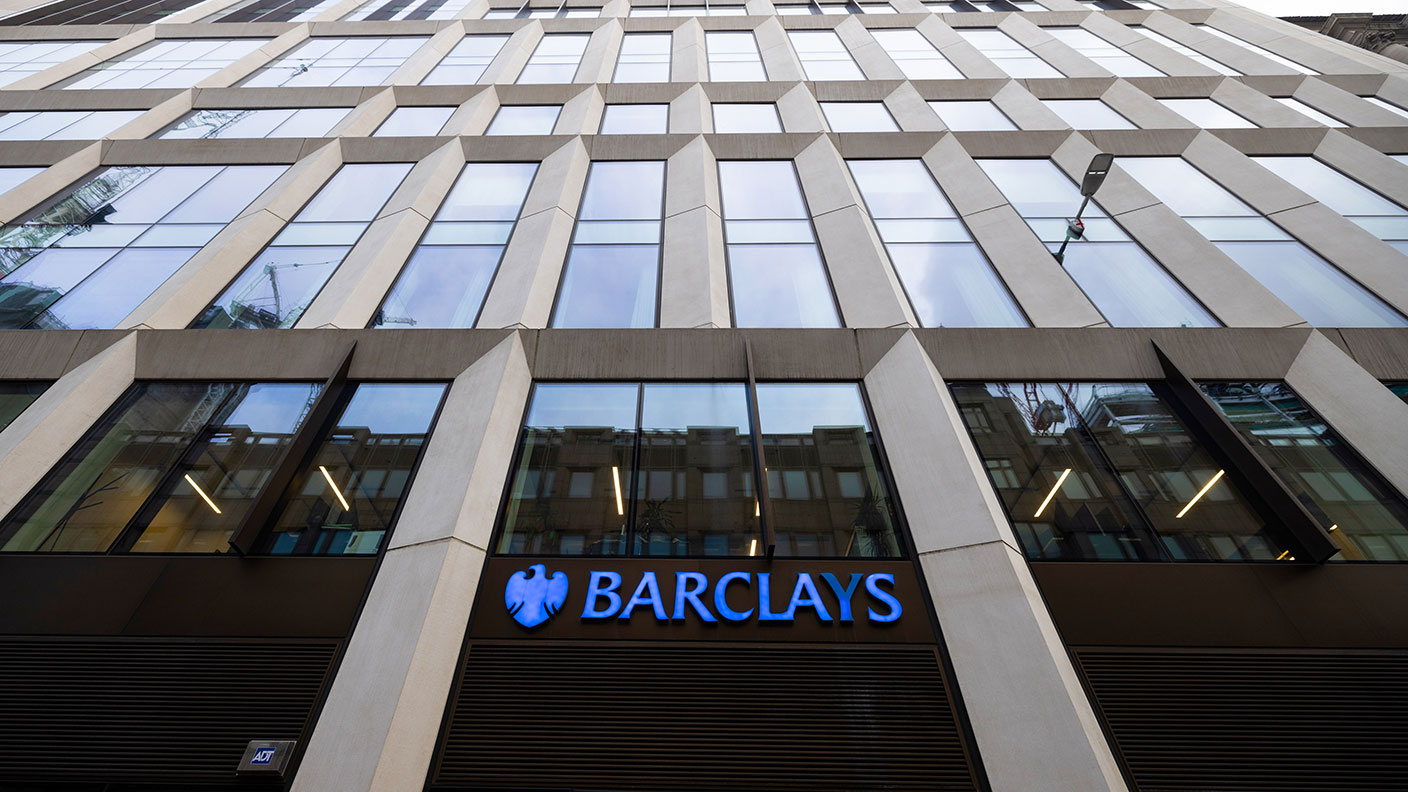What went wrong for Barclays with its £450m structured notes loss?
Barclays has just revealed that it’ll have to shell out nearly half a billion for a failure to fill in the right form. John Stepek explains what went wrong.


Get the latest financial news, insights and expert analysis from our award-winning MoneyWeek team, to help you understand what really matters when it comes to your finances.
You are now subscribed
Your newsletter sign-up was successful
Want to add more newsletters?

Twice daily
MoneyWeek
Get the latest financial news, insights and expert analysis from our award-winning MoneyWeek team, to help you understand what really matters when it comes to your finances.

Four times a week
Look After My Bills
Sign up to our free money-saving newsletter, filled with the latest news and expert advice to help you find the best tips and deals for managing your bills. Start saving today!
Investors in Barclays got a nasty shock this week when the bank revealed that a US paperwork blunder will cost it around £450m. Put simply, Barclays messed up the administration requirements around the issuance in the US of financial products called structured notes and exchange-traded notes (ETNs).
So what went wrong? Any financial securities sold to the public in the US have to be registered with the US financial regulator, the Securities and Exchange Commission (SEC). As Bloomberg’s Matt Levine explains, this is usually done via a blanket “shelf registration statement”, which contains a “very large arbitrary number for how many securities you might sell”. In 2019, Barclays registered to sell just under $20.1bn of securities in a statement. The trouble is that apparently it forgot to keep track of how much of this $20.1bn capacity it had used, and ended up issuing a combined $36bn securities or so – around about $15bn in the last year – instead of $20bn, before realising its error.
A minor mystery solved
The error does appear to explain why Barclays stopped issuing new shares in two of its most popular ETNs – one tracking the Vix volatility index (VXX) and the other tracking crude oil prices (OIL) – a couple of weeks ago. This was at the height of market volatility around Russia’s invasion of Ukraine. The decision resulted in dramatic price moves for both the VXX and OIL products. The inability to issue new shares meant the ETNs could no longer track their underlying indices. Instead they become more like an investment trust – where the price is driven by supply and demand for the shares, and so can trade at an entirely different price to the value of the underlying assets – which, needless to say, is not the point of an ETN.
MoneyWeek
Subscribe to MoneyWeek today and get your first six magazine issues absolutely FREE

Sign up to Money Morning
Don't miss the latest investment and personal finances news, market analysis, plus money-saving tips with our free twice-daily newsletter
Don't miss the latest investment and personal finances news, market analysis, plus money-saving tips with our free twice-daily newsletter
The £450m cost is due to the fact that, because the securities were issued in error, holders have “a right of rescission”. In other words, Barclays has to buy them back at the original sale price. Of course, anyone who made a loss on their structured notes, or perhaps on these two ETNs, will almost certainly exercise this right and get their money back at Barclays’ expense. As you’d expect, the bank is conducting a review into what went wrong.
We suspect that few MoneyWeek readers trade ETNs, and we’ve also railed against structured products often enough to dissuade you from them too. And in this rare case, investors may well have benefited from the error rather than lost out. But it’s another very good demonstration of why you shouldn’t invest in anything that you don’t understand thoroughly. If even a banks’ back office can’t get it right, what hope do you have?
Get the latest financial news, insights and expert analysis from our award-winning MoneyWeek team, to help you understand what really matters when it comes to your finances.

-
 Should you buy an active ETF?
Should you buy an active ETF?ETFs are often mischaracterised as passive products, but they can be a convenient way to add active management to your portfolio
-
 Power up your pension before 5 April – easy ways to save before the tax year end
Power up your pension before 5 April – easy ways to save before the tax year endWith the end of the tax year looming, pension savers currently have a window to review and maximise what’s going into their retirement funds – we look at how
-
 How a dovish Federal Reserve could affect you
How a dovish Federal Reserve could affect youTrump’s pick for the US Federal Reserve is not so much of a yes-man as his rival, but interest rates will still come down quickly, says Cris Sholto Heaton
-
 Why it might be time to switch your pension strategy
Why it might be time to switch your pension strategyYour pension strategy may need tweaking – with many pension experts now arguing that 75 should be the pivotal age in your retirement planning.
-
 Star fund managers – an investing style that’s out of fashion
Star fund managers – an investing style that’s out of fashionStar fund managers such as Terry Smith and Nick Train are at the mercy of wider market trends, says Cris Sholto Heaton
-
 How to add cryptocurrency to your portfolio
How to add cryptocurrency to your portfolioA new listing shows how bitcoin might add value to a portfolio if cryptocurrency keeps gaining acceptance, says Cris Sholto Heaton
-
 Investing in forestry: a tax-efficient way to grow your wealth
Investing in forestry: a tax-efficient way to grow your wealthRecord sums are pouring into forestry funds. It makes sense to join the rush, says David Prosser
-
 The MoneyWeek investment trust portfolio – early 2026 update
The MoneyWeek investment trust portfolio – early 2026 updateThe MoneyWeek investment trust portfolio had a solid year in 2025. Scottish Mortgage and Law Debenture were the star performers, with very different strategies
-
 Pundits had a bad 2025 – here's what it means for investors
Pundits had a bad 2025 – here's what it means for investorsThe pundits came in for many shocks in 2025, says Max King. Here is what they should learn from them
-
 New year, same market forecasts
New year, same market forecastsForecasts from banks and brokers are as bullish as ever this year, but there is less conviction about the US, says Cris Sholto Heaton